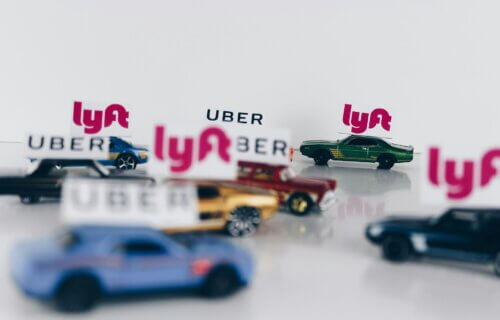CHICAGO — Ever get in an Uber or Lyft and feel the onset of fear as the driver speedily weaves through cars on the highway — while looking at texts on their phone? It’s a daunting feeling, perhaps only comforted a bit by the driver’s 4.96 rating. Of course, leaving a bad rating for a stranger who drives so haphazardly when they know where you live might feel like a bad idea for some folks. That said, the bigger question on the mind might be: Has this driver ever been in a crash? More broadly, how often do rideshare drivers generally wind up in accidents? New research out of the University of Illinois Chicago (UIC) uncovers a startling answer: One-third of rideshare drivers surveyed reported being involved in a crash while on the job.
This first-of-its-kind research, published in the Journal of Safety Research, sheds light on this growing workforce’s unique challenges and hazards. The study analyzed survey responses from 277 rideshare drivers who self-reported their crash history and driving behaviors.
So, what’s behind these alarming crash rates? Survey results show that cellphone use, driving while tired, or navigating unfamiliar roads increased the likelihood of a collision.
Some drivers hit the roads early in the morning to catch airport passengers who need a ride, then spend long hours on the road the rest of the day. Conversely, some could start their day in the afternoon and drive into the middle of the night. Either way, it can be a tiresome experience, and the lack of knowledge about where they are only adds to the risks. Add in the fact that drivers often respond to their next call in the middle of driving a passenger or might be making personal calls or texts during a ride, and it’s clear there are plenty of distractions to increase the odds of crashing.
But there’s another factor at play, one that passengers might not initially consider. “You’ve got a stranger entering your vehicle. They may be unruly. They may be drunk,” explains coauthor Lee Friedman, a research professor with the UIC School of Public Health, in a statement.
Ask any Lyft or Uber driver, and they’ll probably be able to share with you at least one horrible experience with a rider who had too much to drink or was just uncivil in general. Having a rider who appears to be on the verge of vomiting or passing out in the back seat can be a serious disruption to the driver, especially because it’s happening in their own vehicle.
Such stressors are only compounded by the fact that many rideshare drivers are doing this work as a second job, meaning they’re more likely to be tired behind the wheel. The very nature of the gig economy – with its flexible hours and lack of traditional worker protections – could also be adding to these risks.
Looking ahead, the authors suggest better pay rates or a larger percentage of the fare going to the drivers could improve the fatigue issue so many drivers face. “Higher wages, for example, would mean drivers might work fewer hours and take more regular breaks,” notes lead author Brett Shannon, a doctoral student at UIC’s School of Public Health.
It’s also clear that more research into the psychological and physical stressors rideshare drivers face, from ergonomic issues to verbal abuse from passengers, is needed. After all, the rideshare business is still relatively new. The UIC team is addressing this problem by securing grants to conduct more in-depth surveys of rideshare drivers’ working conditions, both in the U.S. and Australia. They’re also diving into crash data from the Illinois Department of Transportation to explore factors like weather, road conditions, and what was happening in the vehicle just before a crash.
When the companies themselves have more data (along with local lawmakers), drivers should expect better working conditions. And that means better experiences for passengers crossing their fingers that the 4.96 rating really means they will have a safe, focused driver.
